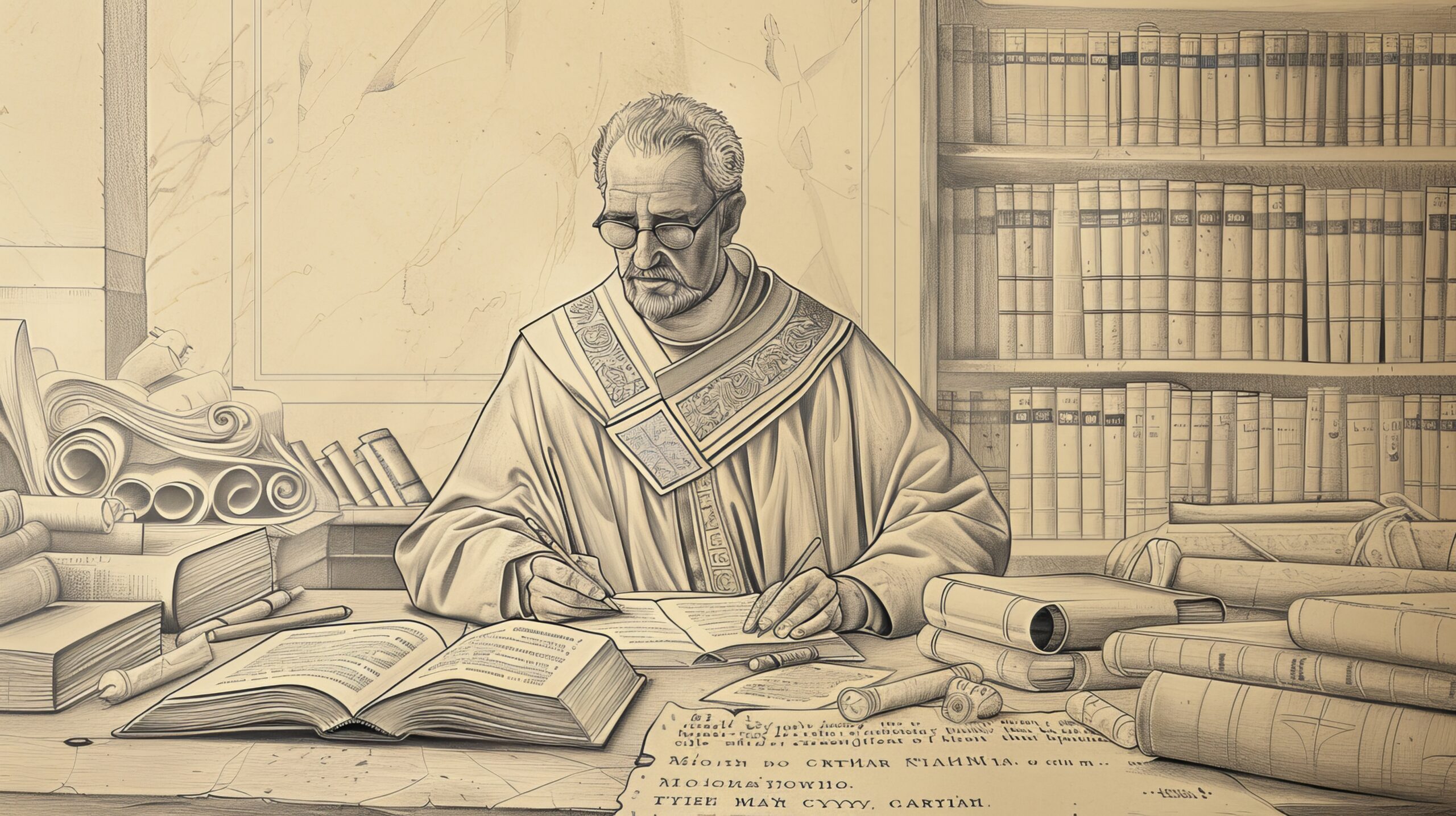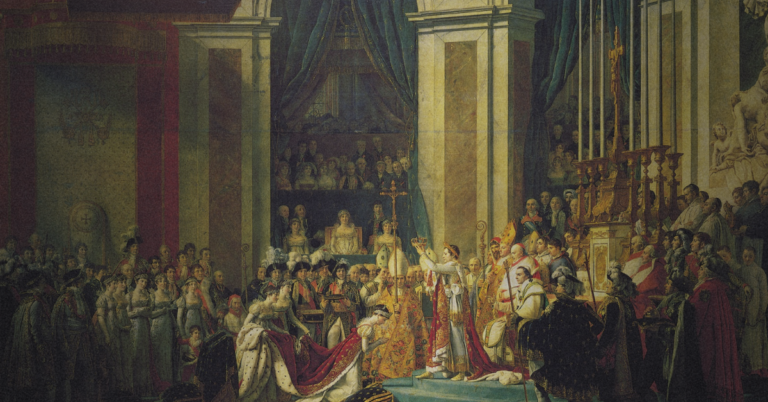Theology, a profound and multifaceted field, invites us to delve into the depths of religious thought and understanding. To truly grasp the essence of various theological perspectives, we must first acquaint ourselves with the foundational principles of theology as a whole.
This initial exploration paves the way for a critical and systematic appreciation of the diverse Christian theologies that shape contemporary religious discourse.
In this blog, we’ll embark on a journey through the different types of theology, uncovering their unique concerns, perspectives, and contributions to our understanding of faith. Whether you’re a seasoned scholar or a curious seeker, this guide will provide valuable insights into the rich tapestry of theological thought.
What is Theology?
Theology, at its core, is the human study of God. The term itself originates from two Greek words: theos, meaning “God,” and logos, meaning “word about” or “study of.”
Essentially, theology is the exploration and interpretation of the divine as revealed in the Scriptures.
Simply put, theology involves a deep dive into the Holy Bible to uncover what God has communicated about Himself, His purposes, His plans, and His promises.
This field of study is not just about acquiring knowledge; it’s about seeking a deeper understanding of the divine and its implications for our lives and the world around us.
What are the 10 Different types of Theology?
Theology is a vast field encompassing various subjects that delve into different aspects of the divine and spiritual realm. Here are the major subjects within theology:
Paterology
Paterology is the study of God the Father. This subject explores the nature, attributes, and works of the Father within the Holy Trinity.
Christology
Christology focuses on Jesus Christ, the Son. It examines His life, teachings, sacrificial death, resurrection, and role in salvation.
Pneumatology
Pneumatology is the study of the Holy Spirit. It investigates the Spirit’s presence, power, and work in the world and inbelievers’ lives.
Angelology
Angelology delves into the study of angels. This includes their nature, functions, and the roles they play in God’s plan.
Demonology
Demonology addresses the study of Satan and demons. It explores their origin, activities, and ultimate fate according to biblical teachings.
Bibliology
Bibliology is the study of the Holy Bible. It covers the Bible’s inspiration, authority, composition, and role as God’srevelation to humanity.
Hamartiology
Hamartiology examines the concept of sin. It investigates the origin, nature, consequences, and the human condition regarding sin.
Soteriology
Soteriology focuses on salvation, God’s provision for sin. It explores how salvation is achieved, its effects, and its importance in the Christian faith.
Ecclesiology
Ecclesiology is the study of the Church. It looks at the Church’s foundation, structure, purpose, and mission in the world.
Eschatology
Eschatology delves into biblical prophecy, end-times, and eternity. It examines what Scripture says about the future, the return of Christ, and the final destiny of humanity.
Why Does Theology Matter?
The study of theology holds significant importance for several reasons. Here’s why understanding the major teachings of Scripture is crucial:
Personal Spiritual Growth and Development
Theology plays a vital role in personal spiritual growth and development. As stated in 2 Peter 3:18, we are encouraged to”…grow in grace, and in the knowledge of our Lord and Saviour Jesus Christ.” Just as growth takes time in the natural world, spiritual growth also requires time and maturity. Some theological truths can only be fully comprehended over years of faithful service and study. For example, a new believer may not grasp the depth of God’s faithfulness as profoundly as someone who has walked with the Lord for decades.
Avoiding Doctrinal Error
Understanding theology is essential to avoid doctrinal error. The first sin arose from the enemy questioning, “…Has God said?” (Genesis 3:1). Without a solid grounding in what God has declared in His Word regarding foundational issues of faith, we are susceptible to false teachings and, ultimately, sin. Theology helps us discern truth from error, protecting our faith from deception.
Explaining Biblical Truths to Unbelievers
Theology equips us to explain Biblical truths to unbelievers and to be prepared to give an answer for the hope that is within us (1 Peter 3:15). It enables us to articulate our beliefs clearly and confidently, providing a reasoned defense of our faith. This is crucial for effective evangelism and witnessing.
Enhancing Our Spiritual Walk and Ministry
Theology is essential for our spiritual walk and ministry. It is not merely about acquiring head knowledge but seeking heart knowledge through the application of what we learn. The goal of revelation is not just to inform but to transform. When theological truths are applied to our lives, they lead to spiritual transformation and deeper intimacy with God. This application empowers us to live out our faith authentically and effectively serve in ministry.
In summary, theology matters because it fosters spiritual growth, safeguards against error, equips us for evangelism, and enhances our spiritual walk and ministry. By studying theology, we deepen our understanding of God, His purposes, and His promises, enabling us to live a more fruitful and faithful Christian life.
What is the history of Christian Theology?
Christian theology has evolved through various periods, each marked by significant developments and influential thinkers. The five main periods in the history of theology are the Patristic, Medieval, Reformation, Enlightenment, and Modern periods. Here, we begin with an exploration of the Patristic Period.
Patristic Period
The Patristic Period marks the genesis of Christian theology and spans from approximately the 2nd to the 8th centuries. This era is characterized by the foundational writings and theological explorations of the Church Fathers, particularly the Christian apologists of the 2nd and 3rd centuries.
Key Developments and Figures
Genesis of Christian Theology: The early apologists sought to defend and articulate the claims of Jesus Christ, translating and adapting these teachings from their Jewish context into the broader Greek cultural and philosophical milieu.
Christian Apologists
Foremost among these early defenders of the faith were figures like Justin Martyr, Origen, and Tertullian.
- Justin Martyr: Known for his efforts to present Christianity as the true philosophy, engaging with Greek thought to explain Christian doctrines.
- Origen: A prolific writer who developed early Christian doctrines and is known for his allegorical interpretations of Scripture.
- Tertullian: Coined the term “Trinity” and contributed significantly to developing Western theological language and concepts.
Theological Giants
The Patristic Period also saw the emergence of theologians such as Athanasius and Augustine, who produced substantial theological works on the Trinity and Christology.
- Athanasius: Played a crucial role in the development of the doctrine of the Trinity, defending the divinity of Christ against Arianism.
- Augustine: One of the most influential theologians in Western Christianity, his writings on original sin, grace, and the nature of the Church shaped much of subsequent Christian thought.
Church Councils
The theological insights of these Church Fathers laid the groundwork for the doctrinal conclusions drawn by several key Church councils.
- Council of Chalcedon (451 AD): Defined the two natures of Christ, fully God and fully man, in one person.
- Council of Constantinople (381 AD): Affirmed the divinity of the Holy Spirit and expanded the Nicene Creed.
- Council of Ephesus (431 AD): Addressed the nature of Christ and declared Mary as Theotokos (God-bearer).
The Patristic Period was crucial in establishing the foundational doctrines of Christianity, many of which continue to underpin Christian theology today. This era set the stage for the further development and refinement of Christian thought in the subsequent Medieval, Reformation, Enlightenment, and Modern periods.
Medieval Period
The Medieval Period of Christian theology, spanning roughly from the 9th to the 15th centuries, is characterized by the rise of scholasticism. This period saw a systematic and rigorous approach to theology, heavily influenced by Aristotelian logic and a strong emphasis on intellectual analysis and synthesis.
Key Developments and Figures
Scholasticism: This term, often used derogatorily, refers to the methodical and structured approach to theology that dominated the medieval era. Scholasticism sought to reconcile faith with reason, using Aristotelian principles to explore and explain theological concepts. It involved meticulous debate and logical analysis, often within the context of medieval universities.
Foremost Theologians
Several prominent theologians emerged during this period, each contributing significantly to the development of Christian doctrine.
- Anselm of Canterbury: Known for his ontological argument for the existence of God and his work “Cur Deus Homo” (“Why God Became Man”), which explores the necessity of the Incarnation.
- Duns Scotus: A leading figure in the scholastic tradition who emphasized the importance of individual experience and introduced the concept of “haecceity” (thisness) to explain the uniqueness of entities.
- Thomas Aquinas: Perhaps the most influential scholastic theologian, Aquinas integrated Aristotelian philosophy with Christian theology in his magnum opus, “Summa Theologica.” His works addressed the nature of God, the relationship between faith and reason, and the principles of natural law.
- Peter Lombard: Known for his “Four Books of Sentences,” which became a standard theological textbook in medieval universities. Lombard’s work systematically compiled and organized theological teachings and was a key resource for subsequent theologians.
- Peter Abelard: Notable for his ethical work “Sic et Non” (“Yes and No”), which compiled conflicting theological opinions and highlighted the need for critical inquiry and analysis in theology.
Dominant Theological Themes: One of the central themes in medieval scholasticism was the attributes of God, including discussions on God’s omnipotence, omniscience, and benevolence. Theologians debated and refined these concepts, seeking to understand the nature and essence of the divine.
Theological Divisions
The period also saw significant theological divisions, particularly between the nominalist and intellectualist traditions.
- Nominalism (Duns Scotus): Emphasized the primacy of individual experience and the idea that universal concepts are merely names without intrinsic reality. Scotus argued that God’s will is supreme and not bound by human logic or categories.
- Intellectualism (Thomas Aquinas): Focused on the harmony between faith and reason, asserting that God’snature can be partially understood through human intellect and natural law. Aquinas believed that God’sessence and attributes could be comprehended through systematic philosophical inquiry.
The Medieval Period was a time of great intellectual activity and debate, laying the groundwork for many theological concepts that continue to influence Christian thought. The meticulous and systematic methods developed during this era provided a foundation for future theological exploration and development.
Reformation Period
The Reformation Period, beginning in the early 16th century, marked a pivotal shift in Christian theology and church history. This era saw the rise of the Protestant movement, which challenged the established doctrines and practices of the medieval Roman Catholic Church.
Key Developments and Figures
Challenging Medieval Theology: The once-unified theological framework of the medieval church, dominated by scholasticism and Roman Catholic dogma, faced significant scrutiny and critique. The Protestant Reformation emerged as a response to perceived doctrinal errors and corrupt practices within the Catholic Church, seeking to reform and return to a purer form of Christianity based on biblical principles.
The Break from Rome: The Reformation led to a major schism within Western Christianity. Scholastic tendencies and rigid Catholic dogmatism were increasingly questioned, resulting in the fragmentation of the Church and the formation of various Protestant denominations.
Martin Luther and the 95 Theses: The most significant event marking the onset of the Reformation occurred on October 31, 1517, when Martin Luther, a German monk and theologian, nailed his 95 Theses to the door of the Castle Church in Wittenberg. This act, intended to provoke public debate, effectively challenged the Church’spractice of selling indulgences—a means of absolving sins in exchange for money.
Public Reaction: Luther’s Theses, which criticized the excesses and theological errors of indulgences, quickly spread throughout Europe, sparking widespread debate and resistance against the Catholic Church’s authority.
Core Theological Debates
The Reformation focused on several key theological issues, including:
- Sola Scriptura: The principle that the Bible alone is the supreme authority in matters of faith and practice, rejecting the Catholic Church’s reliance on tradition and papal authority.
- Sola Fide: The doctrine that salvation is achieved through faith alone, without the need for works or indulgences, countering the Catholic view that both faith and works are necessary for salvation.
- Sola Gratia: The belief that salvation is a gift of God’s grace alone, emphasizing God’s initiative in the process of salvation.
Impact on Church Structure and Worship: The Reformation led to significant changes in church structure, liturgy, and worship practices. Protestant churches rejected the centralized authority of the Pope, instead advocating for a more decentralized and locally governed church structure. This period also saw the translation of the Bible into vernacular languages, making it more accessible to the general populace and encouraging personal study of the Scriptures.
Key Reformers
Besides Martin Luther, other notable reformers played crucial roles in shaping Reformation theology:
- John Calvin: Developed the doctrine of predestination and wrote “Institutes of the Christian Religion,” a seminal work in Reformed theology.
- Huldrych Zwingli: A Swiss reformer who emphasized the importance of Scripture and rejected practices not explicitly supported by the Bible.
- John Knox: A Scottish reformer who led the Protestant Reformation in Scotland and helped establish the Presbyterian Church.
The Reformation Period was a time of profound theological and ecclesiastical transformation, fundamentally altering the landscape of Christianity and paving the way for modern Protestantism. This era underscored the importance of returning to biblical foundations and promoted a more personal and direct relationship between individuals and God.
Enlightenment Period
The Enlightenment Period, spanning the 17th and 18th centuries, was a time of profound intellectual and philosophical change in Western society. This era was characterized by an emphasis on reason, scientific inquiry, and skepticism towards traditional authorities, including the Church and the Bible.
Key Developments and Figures
Impact of the Renaissance and Reformation: The Enlightenment followed the transformative periods of the Renaissance and the Reformation, which had already begun to challenge the authority of the Church and the traditional interpretations of the Bible. These movements set the stage for an even more critical examination of religious beliefs and practices.
Rise of Reason: During the Enlightenment, reason became the paramount criterion for evaluating all aspects of life, including religion. This shift led to the application of various critical methodologies to the study of the Bible and Christianity. Scholars and philosophers began to question traditional doctrines and sought to understand religious texts through the lens of reason and empirical evidence.
Theology and Abstract Reason: The emphasis on reason during this period led to a form of theology that was increasingly abstract and detached from the lived experiences and existential concerns of human society. Theology became more speculative and philosophical, focusing on intellectual discourse rather than practical application.
Anti-Supernaturalism: In its most radical form, Enlightenment thought rejected supernaturalism altogether. This anti-supernatural stance was marked by a growing skepticism towards the miraculous and divine interventions described in the Scriptures. Scientific and academic circles often viewed religious beliefs with suspicion and outright disbelief.
Deism and Divine Absconditus: Even among those who accepted the possibility of a divine being, the Enlightenment fostered a more deistic view of God. Deists believed that God created the world and set it in motion like a clockmaker but then left it to operate according to natural laws without further intervention. This idea of a distant, non-intervening God (divine absconditus) contrasted sharply with traditional Christian views of an actively involved deity.
Notable Theologians
- W. F. Hegel: A philosopher who attempted to reconcile Christianity with modern rationality, seeing the history of religion as a dialectical process leading towards the absolute.
- Immanuel Kant: Although not a theologian per se, Kant’s philosophy profoundly influenced theological thought. He argued that while reason could not prove the existence of God, it was necessary to postulate God’s existence for the sake of moral law.
- Friedrich Schleiermacher: Known as the “father of modern liberal theology,” Schleiermacher sought to bridge the gap between Enlightenment rationalism and traditional Christian beliefs. He emphasized religious experience and feeling over doctrinal rigidity.
The Enlightenment Period marked a significant shift in theological thought, moving away from unquestioning faith towards a critical and rational examination of religious beliefs. This era laid the groundwork for modern theology, which continues to grapple with the balance between faith and reason.
Modern Period
The Modern Period in theology is characterized by a dynamic response to the challenges posed by the Enlightenment, coupled with the evolving social, political, and cultural contexts of the contemporary world.
Key Developments and Figures
Continuation of Enlightenment Challenges: The academic and theological challenges initiated during the Enlightenment continued to influence modern theological thought. This period saw theologians critically engaging with Enlightenment ideas, albeit with some modifications to address contemporary issues.
Vocal Theologians and Diverse Contexts: In response to the dominance of Western theology, many theologians began to vocalize the need to diversify theological reflection to better represent the multifaceted nature of modern society. This included addressing issues related to colonization, race, gender, class, and other social and political dynamics.
Critique of Classical Theology: The modern period involved a critical reassessment of classical Christian theology, which was often seen as stereotyped, patriarchal, and aligned with capitalist values. This critique led to significant innovations in theological reflection.
Emergence of Contextual Theologies
The need to address the unique experiences and contexts of diverse communities resulted in the development of various contextual theologies, including:
- Black Theology: Emerged as a response to the racial injustices faced by African Americans, emphasizing liberation, justice, and the affirmation of Black identity within a theological framework.
- Feminist Theology: Critiqued the patriarchal underpinnings of traditional theology, advocating for the inclusion and equality of women in theological discourse and religious practice.
- Liberation Theology: Originating in Latin America, this theology focused on the plight of the less fortunate and oppressed, emphasizing social justice, economic equality, and political liberation.
- Asian Theology: Sought to articulate Christian theology in a manner that resonates with the cultural and religious contexts of Asia, often integrating elements of indigenous philosophies and practices.
- African Theology: Aimed to express Christian faith through the cultural, social, and religious experiences of African peoples, emphasizing communal values, storytelling, and a holistic view of life.
These modern theological movements represent a significant departure from traditional Western theology, highlighting the importance of context and the need for a more inclusive and representative approach to understanding and expressing faith. They underscore the evolution of theology as a discipline that must continually adapt and respond to the changing realities of the world, ensuring its relevance and resonance with diverse communities and their lived experiences.












